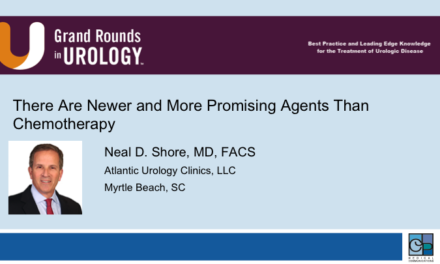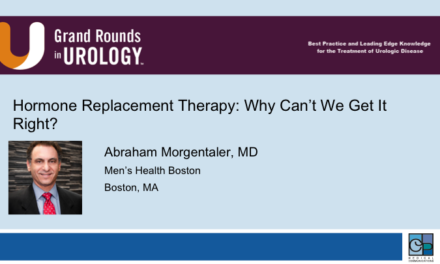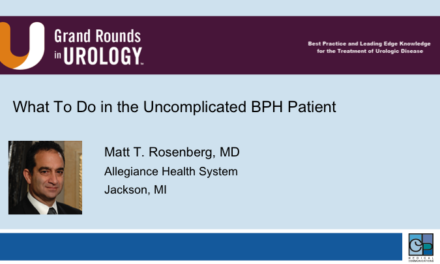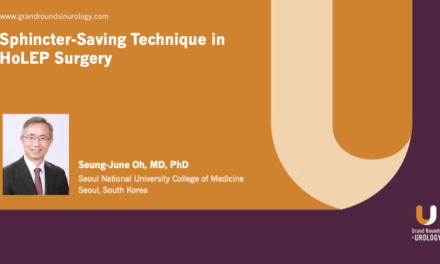Martin M. Miner, MD, presented “Male Mortality and Men’s Health Issues: Barriers, Testosterone, PDE5 Therapy and GLP1 Agonist Therapy” during the 33rd International Prostate Cancer Update on January 23, 2023, in Vail, Colorado.
How to cite: Miner, Martin M. “Male Mortality and Men’s Health Issues: Barriers, Testosterone, PDE5 Therapy and GLP1 Agonist Therapy.” January 23, 2023. Accessed Apr 2024. https://grandroundsinurology.com/male-mortality-and-mens-health-issues-barriers-testosterone-pde5-therapy-and-glp1-agonist-therapy/
Male Mortality and Men’s Health Issues: Barriers, Testosterone, PDE5 Therapy and GLP1 Agonist Therapy – Summary
Martin M. Miner, MD, Co-Director of the Men’s Health Center and Chief of Family and Community Medicine for Miriam Hospital in Providence, Rhode Island and Clinical Professor of Family Medicine and Urology at the Warren Alpert Medical School of Brown University in Providence, discusses the role of testosterone therapy in improving men’s health outcomes. Dr. Miner opens by presenting testosterone therapy (TTh) as undervalued despite its positive effects on sex drive, muscle mass, mood, and motivation. Dr. Miner details the association between testosterone deficiency (TD) and medical conditions such as type two diabetes, obesity, and osteoporosis. He explores the 2016 T-Trials, the largest randomized control trial for testosterone therapy to date. The study indicated improvements in libido, mobility, mood, and energy after TTh. However, many of these improvements were considered not medically significant. Dr. Miner explains the physiological role of testosterone and explores specific benefits of TTh, regarding improvements in sexual function and reduction of fat mass as key benefits. He introduces the testosterone for Diabetes Mellitus (T4DM) trial, in which TTh shows potential in combating type two diabetes, especially when combined with lifestyle intervention. Dr. Miner next investigates the associations between testosterone and prostate cancer, finding patients with TTh had a lower risk of aggressive prostate cancer than men who did not. Dr. Miner explores a 2022 BioBank study in which lower total testosterone is associated with dementia. He follows this by exploring the association between hypogonadism, testosterone therapy, and COVID-19 hospitalizations and outcomes. Dr. Miner contextualizes the role of men’s health and sexual medicine in major chronic disease, an association that is consistent throughout all racial, ethnic, and socioeconomic backgrounds. Miner briefly introduces studies regarding the effect of diet and lifestyle on erectile dysfunction, and the role of phosphodiesterase type 5 inhibitors on cardiac health.
About The 33rd Annual International Prostate Cancer Update:
The International Prostate Cancer Update (IPCU), founded in 1990, is a multi-day CME conference focused on prostate cancer treatment updates with expert, international faculty. It is led by expert physicians and is designed for urologists, medical oncologists, radiation oncologists, and other healthcare professionals involved in the diagnosis and treatment of prostate cancer. The 33rd iteration of the meeting occurred January 22-25, 2023 in Vail, Colorado. To view more educational presentations from IPCU 33, visit our collection page.




